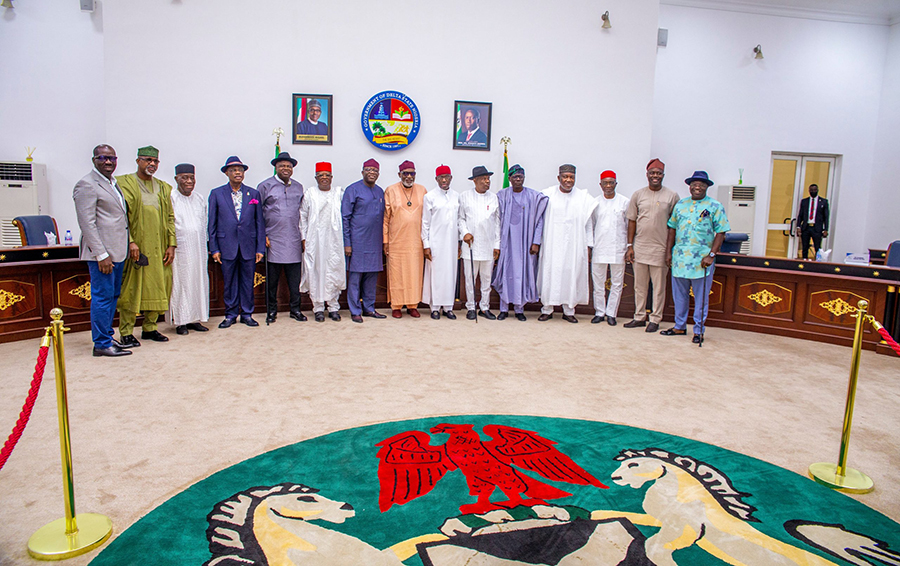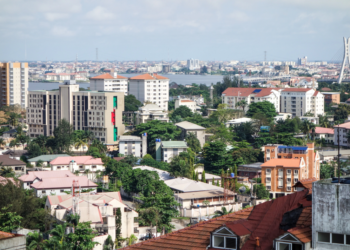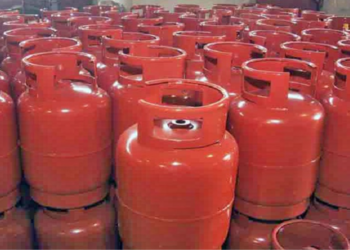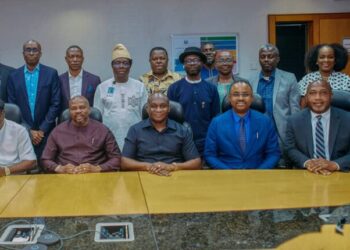Earlier this week, 17 Governors from Southern Nigeria met in Delta State to discuss the rising insecurity in the country. They called for restructuring to enable states to have more financial autonomy and capacity to deal with threats relating to Insecurity.
“We discussed various national issues including security and restructuring. In view of the incursions of armed herders, criminals, and bandits, we resolved to ban open grazing in all of Southern Nigeria.
Nigeria needs to be restructured to reflect true federalism leading to state policing and a change in the revenue allocation formula of the nation. We also recommended the establishment of ports in other states to address the congestion of the Apapa Port,” Seyi Makinde, Oyo State Governor said.
Herdsmen attacks
The move to ban open grazing comes as no surprise, as there have been multiple reports of armed herdsmen attacks and fatal herder-farmer clashes.
Earlier this year, The National Economic Council (NEC) stated that State Governments have statutory jurisdiction over forest reserves and will seek federal support for efforts to eradicate forest-based crime. The Council deliberated on how forests can be better managed and secured against criminals and criminality, citing that the National Livestock Transformation Plan, a comprehensive strategy for addressing the farmer-herder conflict, was developed by the States in collaboration with the Federal Government and Governors will seek its full implementation.
The FG also announced the launch of a National Livestock Breed Improvement Programme (NALBIP), with the aim of reducing herdsmen/farmer clashes and also boosting dairy cattle production in Nigeria.
However, these noble policies have not stopped the violent attacks. According to a report by ThisDay in 2020, “Between 2017 and May 2, 2020, herdsmen conducted 654 attacks, killed 2,539 and kidnapped 253 people in Nigeria.”
The rise of state/regional police and vigilante groups
Abuja’s indecisiveness towards tackling the herdsmen issue has led to the creation of two regional vigilante networks in the South, Amotekun in the South West, and Ebube Agu in the Southeast.
Governors of the South Eastern region, in a joint meeting held last month to discuss the growing rate of non-state backed killings at police checkpoints in the region, agreed on the need for state police, while revealing the state-backed security outfit, “Ebube Agu,” modelled after Amotekun of the South West.
Is open grazing ban the silver bullet to insecurity in southern Nigeria?
Farmer-herder clashes are not the main cause of insecurity in the south, although they are a major contributor. Confidence McHarry, a Security Analyst believes that compliance and implementation of the open grazing ban would be hard if the states don’t have the full willingness collectively and the backing of Abuja to end the crisis.
“However, the open grazing ban only tenders to one aspect of insecurity: pastoral conflict. It does not take into account the myriads of problems facing the south, chief of which are gang-related clashes and unemployment,” McHarry said. “The focus is on herdsmen because it is an existential crisis, but there are several other existential threats in the region that require equal collaboration across the board.”
Can the open grazing ban be enforced?
“Enforcement has always been the bane of the existence of Nigerian laws.
The governors will have to find the political will to do so, but you cannot count on all 17 of them to do so. In Lagos, the government does not think this is a problem. As a matter of fact, Sanwo-Olu mentioned that the Lagos Neighborhood Watch is already doing Amotekun’s job. That takes Lagos away. The Imo state governor is facing a legitimacy crisis and it is very understandable if he pulls out.
For the remaining 15, Ebonyi, Delta, Oyo, Ogun, and Edo are the worst hit. Amotekun’s operations in Ogun and Oyo give us a fair idea of how implementation can take place in areas with existing regional security frameworks. For the South-South and the South East, enforcement will be a huge problem,” he adds.
What can the FG do to support it?
“Abuja can try to support by toning down its speeches that reek of inflammation instead of pacifism,” McHarry urged.
And that would mean having one channel of communication. You can’t have the AGF saying one thing and the presidential advisers on media saying a different thing from the security services.
A single line of harmonization of both policy pronouncements and implementation would serve all interests here,” he added.
Bottomline
The ban on open cattle grazing was long overdue considering the numerous attacks by armed herdsmen on farmers in the south and also, cases of kidnapping for ransom.
With the forming of local vigilante groups backed by the state, the need to restructure Nigeria has become more glaring as it is now crucial to grant states the power to form their own police units to battle insecurity.
However, this will not be a walk in the park as states need the willingness and collaboration of the federal government to fully enforce the ban on open grazing in the South and to bring an end to herdsmen attacks in the region.





















